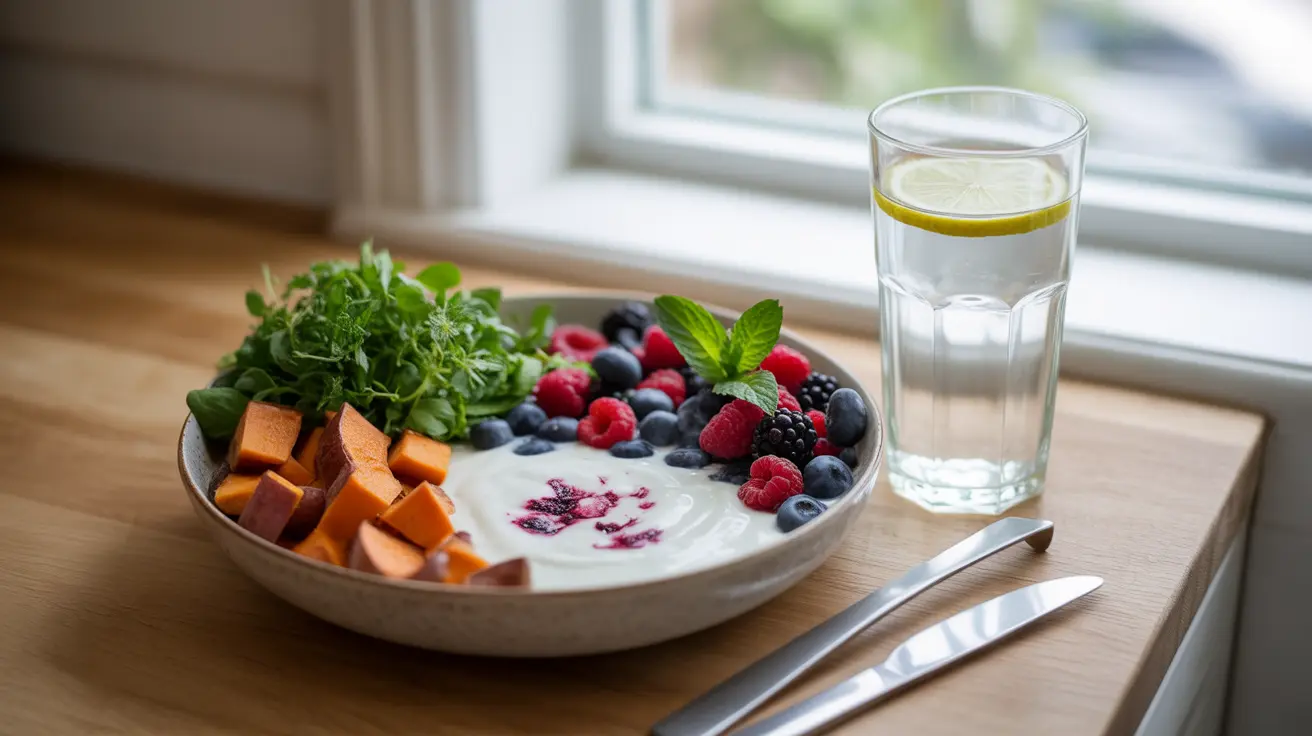Living with a stomach ulcer can be challenging, but following the right diet can make a significant difference in your healing journey and overall comfort. Understanding which foods to embrace and which to avoid is crucial for managing symptoms and supporting your body's natural healing process.
This comprehensive guide will explore the most effective dietary strategies for people with ulcers, including specific foods that can help soothe your stomach and those that might aggravate your condition. We'll also provide practical meal suggestions to make your ulcer diet both manageable and enjoyable.
Foods That Promote Healing
Certain foods can actively support your stomach's healing process and provide relief from ulcer symptoms:
Probiotic-Rich Foods
Incorporating probiotics into your diet can help restore beneficial bacteria and fight harmful bacteria like H. pylori. Consider adding these options to your meals:
- Yogurt with live cultures
- Kefir
- Aged cheeses
- Fermented vegetables
- Kombucha (if well-tolerated)
Antioxidant-Rich Foods
Foods high in antioxidants can help protect your stomach lining and support healing:
- Berries (blueberries, strawberries, raspberries)
- Leafy greens
- Sweet potatoes
- Bell peppers
- Squash
Foods to Avoid
Some foods can irritate your stomach and slow down the healing process. It's important to identify and avoid these triggers:
Common Irritants
- Citrus fruits and juices
- Spicy foods
- Tomato-based products
- Coffee and caffeinated beverages
- Alcohol
- Chocolate
Creating a Balanced Meal Plan
A well-planned ulcer diet should focus on eating small, frequent meals throughout the day. Here are some meal ideas that combine healing foods while avoiding irritants:
Breakfast Options
- Oatmeal with banana and honey
- Greek yogurt with berries
- Whole grain toast with scrambled eggs
Lunch and Dinner Ideas
- Baked chicken with steamed vegetables
- Quinoa bowl with roasted vegetables
- Grilled fish with sweet potato
- Brown rice with lean protein
Supporting Medical Treatment
While following an ulcer-friendly diet is important, it should complement, not replace, your prescribed medical treatment. A proper diet can help:
- Reduce inflammation
- Support the effectiveness of medications
- Prevent future ulcers
- Manage symptoms more effectively
Frequently Asked Questions
What foods should I eat and avoid to help heal and manage a stomach ulcer?
Eat foods rich in probiotics (yogurt, kefir), fiber (whole grains, vegetables), and lean proteins. Avoid spicy foods, citrus fruits, coffee, alcohol, and chocolate, as these can irritate your stomach lining and worsen symptoms.
How do probiotics and antioxidant-rich fruits and vegetables benefit stomach ulcer healing?
Probiotics help restore beneficial gut bacteria and fight H. pylori infection, while antioxidants protect the stomach lining from damage and reduce inflammation. Together, they create an environment conducive to healing.
Can certain spices or beverages worsen stomach ulcers, and which ones should I avoid?
Yes, spicy foods (especially those containing cayenne or hot peppers), coffee, alcohol, and acidic beverages can irritate the stomach lining. Stick to mild herbs and spices, and opt for water or herbal teas instead.
How can a balanced ulcer-friendly diet support medical treatment for H. pylori infection?
A balanced diet supports your immune system, helps maintain a healthy gut environment, and can enhance the effectiveness of antibiotics used to treat H. pylori. It also helps prevent further damage to the stomach lining during treatment.
What are some practical meal ideas or snacks recommended for people with stomach ulcers?
Good options include banana and yogurt smoothies, whole grain crackers with mild cheese, steamed vegetables with lean protein, oatmeal with honey, and non-acidic fruit like melons. Focus on eating small, frequent meals throughout the day.




